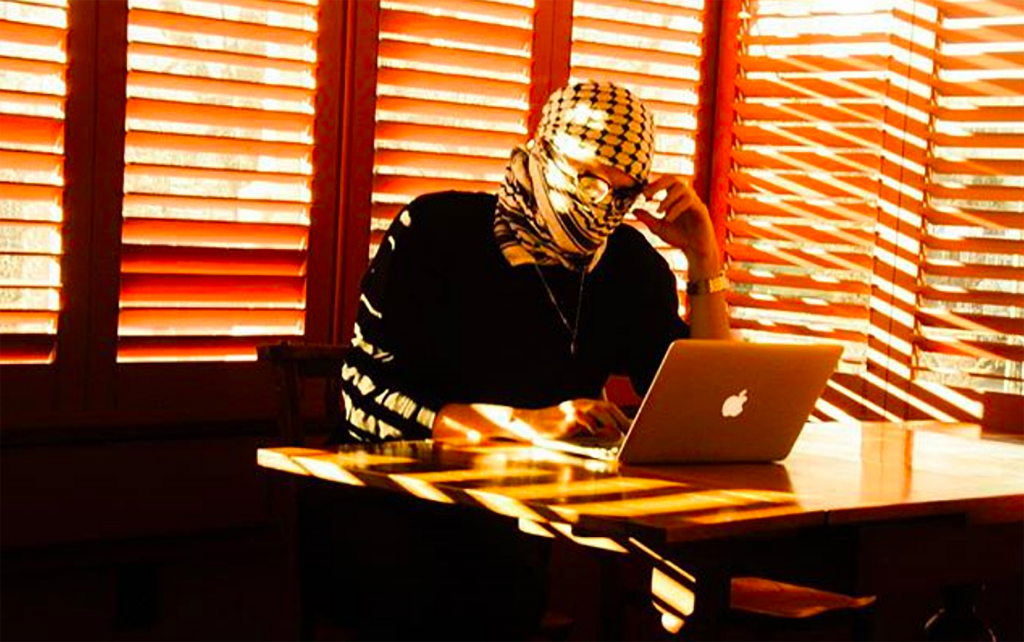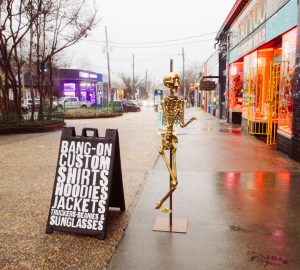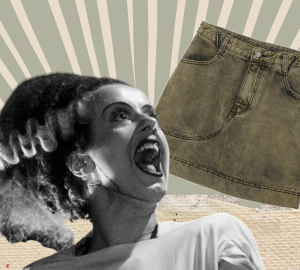
Cultural appropriation has been a hot-button issue as of late, with its denotation and connotation becoming increasingly at odds with each other. A few weeks ago, The Connector published a piece about cultural appropriation and the Met Gala. This week, we had the chance to discuss the subject further with Mohammed el-Kurd. El-Kurd, 20, is a second-year writing student at SCAD and an influential poet from Palestine. We asked him some questions about keffiyehs, a cultural garment that El-Kurd finds especially meaningful.
The Connector: Tell me about your work.
El-Kurd: I am passionate about social work because of my upbringing. My poetry primarily deals with issues of injustice around the world, but specifically in Palestine confronting the climate created by military occupation. The subject matter I discuss layers the trauma of the Israeli occupation with the aspects of gender, religion, heartbreak and mourning. I strive to create intimate poetry that is awake enough to embrace all of these facets.
The Connector: What is the significance of the keffiyeh to you personally?
El-Kurd: It is a historical symbol of the Palestinian struggle. This kind of scarf was worn on the faces of the freedom fighters to conceal their identities, so it goes hand in hand with the very core of the Palestinian resistance. It’s a statement of an identity that’s foreign, feared and frowned upon, so it feels powerful for me to wear. Human bodies dressed are walking billboards and you can advocate whatever cause you want — this is my cause.
The Connector: How did you feel when you saw a version of this scarf for sale at Anthropologie?
El-Kurd: I was furious and frustrated, but not shocked. When this scarf is appropriated and sold for an astronomical price, it shows a lack of understanding of its historical context. It undermines the importance of the scarf. Over and over we see corporations exploiting cultural symbols of minorities while making a profit, highlighting their ignorance to the cultural symbols’ meaning.
The Connector: Why is this unacceptable?
El-Kurd: Because they can get away with it. Rebecca from Utah at brunch can get away with it, but Mohammed is going to be called a terrorist. Mohammed is going to make Rebecca uncomfortable even though she is wearing the same scarf. I have a lot of white friends whom I’ve given these to and lots of non-Palestinian friends who buy them for themselves. There is only one remaining factory that produces these anymore, in the city of Hebron. It’s highly dangerous to be in and under risk of being shut down. Palestinians are under so many restrictions from buying and selling land, growing their own crops, etc., so if you love keffiyeh then buy them from Hebron! When you buy these scarves from H&M or Chanel you’re literally robbing the authentic makers of the scarf of their power to make it anymore. We are not asking you not to wear it, just to buy it from the right person. Support the people who originally created the item!
The Connector: Lots of people roll their eyes at the subject of cultural appropriation, arguing that it benefits an increasingly connected world. What’s your response to this?
El-Kurd: Just their own ignorance and privilege. This statement is really important because it highlights that they actively misunderstand what cultural appropriation is. If it’s beneficial then it’s appreciation, not appropriation. People’s lives depend on these keffiyehs being sold. You have the privilege of living geographically in an area where these things aren’t sold as well as the means to steal these cultural items rather than collaborate with their cultural makers. That’s what these corporations are doing, literally impacting people’s livelihoods. Why are you so uninteresting that you can’t come up with your own creations?
The Connector: What advice do you have about respecting cultural and religious garb?
El-Kurd: Our generation just lacks self-awareness. We don’t take enough time to ask ourselves “what entitles me to said activity”? If you don’t ask yourself this question you’re never going to have an answer. Talk to people whom you might be offending, question your authority and when people diagnose you with racism, don’t get angry — try and correct your behavior. Don’t refuse to acknowledge the fact that you are entitled and unaware of yourself. Ask yourself if you are wrong, because you probably are.






















